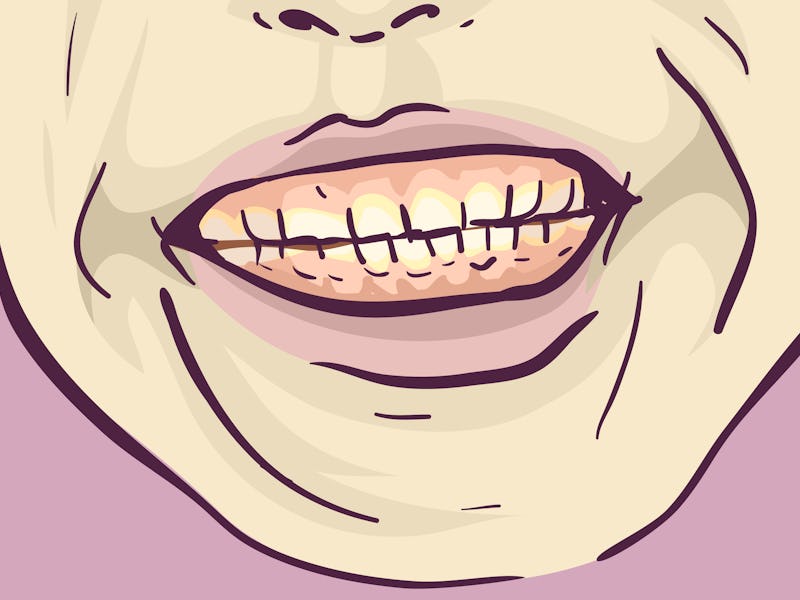The scientific reason you grind your teeth — and how to stop
It could reveal issues in your everyday life.

Dentists have reported a rise in teeth clenching and grinding in 2021.
The symptoms of teeth clenching and/or grinding (also known as bruxing or parafunction) can include pain in teeth and gums, as well as jaw joints and muscles.
The pain it causes can be debilitating and significantly affect your daily life.
We’re specialist dentists who teach, research, and practice in the areas of prosthodontics (Dale Howes) and community dentistry (Alexander Holden). Here’s what you need to know about clenching and grinding your teeth.
Are you clenching your jaw right now?
Our top and bottom teeth are only designed to meet when we need them to; for biting and chewing food.
We naturally spend only a small portion of the day chewing, with our top and bottom teeth making contact with each other.
As you read this article, think about how, subconsciously, you have positioned your teeth and jaws. Assuming you are not eating or chewing while reading, your teeth should be apart when you’re relaxed, whether or not your lips and mouth are shut.
If we grind or clench more than nature intended, the teeth can become worn over time, while the jaw muscles can become fatigued and tight.
The jaw joints (known as the temporomandibular joints) attaching the lower jaw to the skull contain a disc, which helps control the way the jaw joints move.
This disc can become distorted or dislocated, which can lead to clicking, reduce function and cause pain.
So why do we grind our teeth?
Stress is one of the main contributing factors.
When I (Alexander Holden) see patients who complain of soreness in their jaw joints and surrounding muscles, or who have obvious signs of grinding or wear on their teeth, I’ll ask about stress.
“No, I’m not stressed at all!” is often the answer, but then when we sit and talk about what’s really going in their life, the sources of stress quickly become apparent.
Starting a new job, challenges at home or with family, or coping with a life change are all common experiences that stress us more than we realize. It’s not always easy to identify when we’re experiencing tough times.
Stress can contribute to a habit of jaw clenching or teeth grinding.
What can we do about it?
The first step is becoming aware you’re grinding and clenching and making an often subconscious behavior into one that we can control and stop.
Dental practitioners are trained to check the health and status of the jaw joints and the muscles that help you to chew.
A dental check-up can help reveal the signs of teeth grinding and jaw clenching, which can include cracked teeth and fillings, worn crowns, or cusps (which is what the elevated edge of a tooth is called), and tender jaw muscles. Tender muscles around the sides of the head and neck are also common.
Stress management and physiotherapy may be important components of a multi-disciplinary approach to care.
If you grind at night (ask your partner), you might wake with sore teeth, jaw joints, or head and neck muscles. Chat with your dentist about whether a bite guard (also known as a bite-raising appliance or “splint”) might be right for you. These protect your teeth and jaws while you sleep.
For those who have issues with a sore jaw from clenching and grinding, avoid chewing gum for extended periods of time. Chewing sugar-free gum has been linked to reducing the risk of tooth decay but for grinders, it can contribute to jaw pain.
Addressing the cause, managing the symptoms
At the end of the day, patients need to also address the stressors which may be the underlying cause.
For many people, teeth grinding is cyclical and periodically disappears after the source of their stress is managed or subsides.
For others, it might not be so straightforward.
That’s where the advice and care of a dentist can help get you the care you require.
This article was originally published on The Conversation by Alexander Holden and Dale Howes at the University of Sydney. Read the original article here.
This article was originally published on